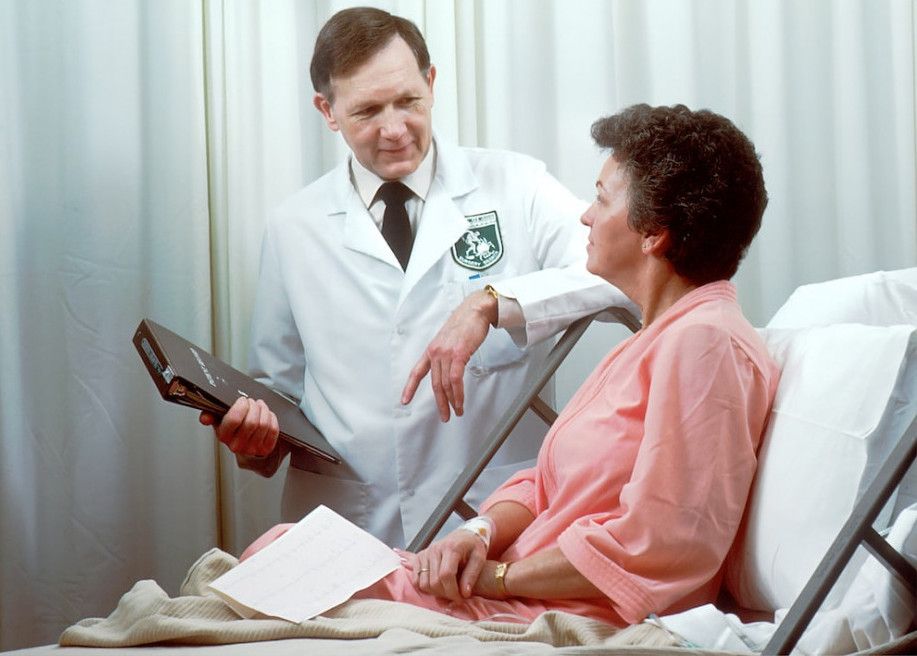Being hospitalized can be a stressful and challenging experience. Not only are you dealing with the illness or injury that led to your hospitalization, but you may also experience several other symptoms, both physical and emotional.
Some of the most common physical symptoms after a hospital stay include:
Fatigue After a Hospital Stay
One of the most common physical symptoms after a hospital stay is fatigue. This is a feeling of tiredness or weakness that makes it difficult to do everyday activities. Fatigue can be caused by several factors, including:
-
-
- Inactivity: When you’re in the hospital, you’re likely to be confined to bed or a chair for much of the time. This can lead to muscle weakness and fatigue.
- Medications: Some medications can cause fatigue as a side effect.
- Anemia: Anemia is a condition in which your body doesn’t have enough red blood cells. This can lead to fatigue, shortness of breath, and pale skin.
- Depression: Depression is a common mental health condition that can cause fatigue, sadness, and loss of interest in activities you used to enjoy.
-
If you’re experiencing fatigue after a hospital stay, there are several things you can do to help manage it:
-
-
- Get plenty of rest: This may seem counterintuitive, but it’s important to get as much rest as you need to feel your best. Aim for 7-8 hours of sleep each night.
- Eat a healthy diet: Eating a healthy diet will give you the energy you need to recover. Make sure to include plenty of fruits, vegetables, and whole grains in your diet.
- Exercise regularly: Exercise is a great way to improve your energy levels. Start slowly and gradually increase the amount of time you spend exercising each day.
- Talk to your doctor: If your fatigue is severe or doesn’t improve with lifestyle changes, talk to your doctor. They may be able to identify the underlying cause of your fatigue and recommend treatment options.
-
It’s important to remember that fatigue is a normal part of the recovery process after a hospital stay. Most people will start to feel better within a few weeks. However, if your fatigue is severe or doesn’t improve, talk to your doctor.
Common physical symptoms after a hospital stay include weakness
After a hospital stay, it’s not uncommon to feel weak and tired. This is because your body has been through a lot, and it needs time to recover. There are a number of things you can do to help your body recover and regain its strength.

What causes weakness after a hospital stay?
There are a number of reasons why you might feel weak after a hospital stay. These include:
-
-
- Immobility: When you’re in the hospital, you’re often confined to bed or a chair. This lack of movement can lead to muscle weakness.
- Dehydration: When you’re sick, you may not feel like drinking as many fluids. This can lead to dehydration, which can also cause weakness.
- Nutritional deficiencies: When you’re in the hospital, you may not be able to eat or drink as much as you normally do. This can lead to nutritional deficiencies, which can also cause weakness.
- Medication side effects: Some medications can cause side effects such as fatigue and weakness.
- Stress: The stress of being in the hospital can also contribute to weakness.
-
How to recover from weakness after a hospital stay
There are several things you can do to help your body recover from weakness after a hospital stay. These include:
-
-
- Gradually increase your activity level: As you start to feel better, gradually increase your activity level. Start by doing simple activities, such as walking around the block or doing some light housework. As you get stronger, you can gradually increase the intensity and duration of your activities.
- Drink plenty of fluids: It’s important to stay hydrated, especially if you’ve been dehydrated while in the hospital. Drink plenty of water, juice, and other fluids.
- Eat a healthy diet: Make sure you’re eating a healthy diet that includes plenty of fruits, vegetables, and whole grains. These foods will provide your body with the nutrients it needs to recover.
- Get enough rest: Your body needs time to heal, so make sure you’re getting enough rest. Aim for 7-8 hours of sleep each night.
- Manage stress: Stress can make it harder for your body to heal. Find healthy ways to manage stress, such as exercise, yoga, or meditation.
-
If you’re still feeling weak after a few weeks, talk to your doctor. There may be an underlying medical condition that needs to be addressed.

Tips for getting back on your feet after a hospital stay
Here are some tips for getting back on your feet after a hospital stay:
-
- Start slowly: Don’t try to do too much too soon. Start by doing simple activities, such as walking around the block or doing some light housework. As you get stronger, you can gradually increase the intensity and duration of your activities.
- Ask for help: Don’t be afraid to ask for help from your family, friends, or a home health care aide. They can help you with tasks such as cooking, cleaning, and bathing.
- Be patient: It takes time to recover from a hospital stay. Don’t get discouraged if you don’t feel back to your old self right away. Just keep at it, and you’ll eventually get there.
These symptoms can make it difficult to recover from your illness or injury and return to your normal activities. Physical therapy can help you manage these symptoms and regain your strength and mobility.
Physical therapy is a type of rehabilitation that uses exercise, manual therapy, and education to help people recover from injuries or illnesses. Physical therapists can help you improve your range of motion, strength, and balance. They can also teach you how to manage your pain and how to prevent future injuries.
If you are experiencing any of the symptoms listed above, talk to your doctor about physical therapy. Physical therapy can help you recover from your hospital stay and get back to your normal life.
Here are some ways that physical therapy can help you recover from a hospital stay:

- Improve your range of motion: Physical therapists can help you regain the range of motion in your joints that you may have lost due to your illness or injury.
- Increase your strength: Physical therapists can help you build strength in the muscles that you need to move around and perform your daily activities.
- Improve your balance: Physical therapists can help you improve your balance so that you are less likely to fall.
- Manage your pain: Physical therapists can teach you exercises and techniques that can help you manage your pain.
- Prevent future injuries: Physical therapists can teach you how to prevent future injuries by improving your posture, strengthening your muscles, and teaching you how to move safely.
If you are experiencing any of the symptoms listed above, talk to your doctor about physical therapy. Physical therapy can help you recover from your hospital stay and get back to your normal life.

